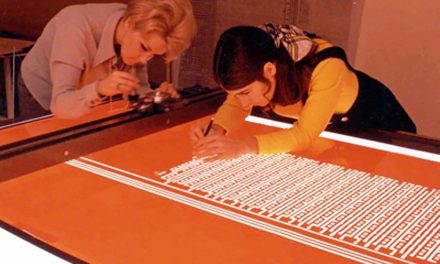Icons of Industry – Pamela J. Gordon
This month’s Icon is a true visionary for the industry, with a unique perspective, compared to our other founders. As a leading market research analyst and founder of Technology Forecasters, Pamela J. Gordon provided invaluable services to the industry as it evolved. She helped develop ways to measure and track its growth through her work with TFI’s annual market forecast data collection; she enabled the industry to evaluate itself through programs like the Service Excellence Awards; and most significantly, she became one of the earliest advocates for sustainability and environmental protection. Since she is still very active in the industry, we asked this thought leader to share her reflections on the industry past, present and future.
 EMSNOW: How did you come to start Technology Forecasters, and what brought you to the electronics manufacturing industry?
EMSNOW: How did you come to start Technology Forecasters, and what brought you to the electronics manufacturing industry?
I grew up in Silicon Valley in a family of engineers and backpackers — valuing both innovative technology and the sanctity of wilderness. Early in my career, after working for McGraw-Hill division Gnostic Concepts, an electronics-industry market-research firm, I founded the consultancy Technology Forecasters Inc., to help electronics companies to build responsible supply chains.
EMSNOW: You operated in Silicon Valley and forged business relationships with U.S. EMS companies from the earliest years. Do you have any favorite stories to share about those earliest days?
In 1989 — two years after I started Technology Forecasters — the news of Beijing’s Tiananmen Square protests and massacre broke. A VP at Flextronics — an early Silicon Valley EMS company operating in China — in response to feeling the heat of social-responsibility incrimination, responded with irony, “Yes, we’re operating right in the middle of Tiananmen Square,” to try to distance his company from the world’s outrage. This was my first notion that EMS companies faced not only environmental scrutiny but also social-justice implications from countries in which they operated.
EMSNOW: What has your experience been as a woman in the electronics industry?
On one hand, I was more memorable because I was one of a few women in an electronics-industry leadership role. On the other hand, I had to protect myself from unwelcome advances by male industry members during cocktail and dinner events, which limited my ability to attend some key networking events. The anti-harassment trainings required by the larger electronics companies helped; men who hadn’t had that training and exhibited old-school behaviors stood out.
A highlight of my career has been to mentor women in the tech industry; I’ve stayed in touch with some women I worked with at Technology Forecasters for three decades. In my current role at Presidio Graduate School, I get to mentor women and men earning their MBAs in sustainable solutions.
EMSNOW: Tell us about the programs TFI developed to measure customer satisfaction among OEMs? How did those come about?
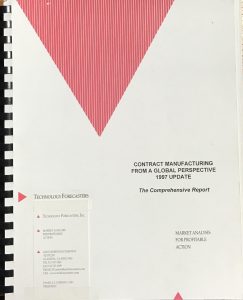
The program became even more exciting when Cisco VP Supply-Chain Steve Darendinger, who had worked at an EMS earlier in his career, asked Technology Forecasters to conduct inverse research: an OEM engaging us to interview its suppliers about the OEM’s supply-chain management attributes. CEO-at-the-time John Chambers had told Steve, “I want our suppliers to be as happy with Cisco as Cisco wants its customers to be happy with us.” We interviewed dozens of strategic suppliers, eliciting anonymous supplier evaluations for better supply-chain management practices.
EMSNOW: TFI brought EMS and OEMs together to discuss challenges and opportunities through the TFI Quarterly Forum. How did that come about and what value did your clients gain?
As our biannual tome of EMS industry forecasts and EMS and OEM profiles grew heavier, a client at Agilent called me to say, “Pam, I want what your firm is producing, but quarterly, on-line, and interactively.” In December 1999, we hosted the first Quarterly Forum for Electronics Manufacturing and Supply Chain. What a pleasure it was to attend these industry gatherings–small enough to feel like an industry leadership team yet comprising tech giants whose decisions altered history. Gratitude goes to Eric Miscoll for managing these live events quarter after quarter.
Honestly, not only did our clients value from the Quarterly Forum, but also Technology Forecasters was able to forge deep client relationships that led to years of consulting and mentoring.
EMSNOW: Your work identifying and supporting analysts like Charlie Barnhart helped bring new insights to the industry. How did you come to find these individuals?
Many of our OEM and EMS clients wanted to work for us. They viewed TFI as an objective platform from which to share their industry and economic experiences.
I was proud of our diverse staff, coming together in collaborative, meaningful work from different countries, races, religions, sexual orientations, and socioeconomic backgrounds.
EMSNOW: How did you come to be so interested in sustainability and the environment in the electronics industry?
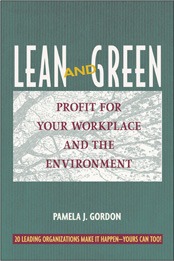
My leadership coach Ian Jacobsen wisely advised me to resist the notion to start a new consultancy, and instead to develop TFI Environment within my existing consultancy to build on brand value and strong relationships. He was right.
EMSNOW: You were always focused on the business case for sustainability, aiming to reach top level executives. Do you believe that the C-Suite is now sufficiently on board with converting to the circular economy?
From witnessing the business value of having trained more than one thousand product designers and students in Eco-Design and Circular Economy, it became easy to garner C-Suite support for formally embedding eco-design within design processes. CEOs tend to be smart, and once explained to them they get that customers demand efficiency and responsibility.
EMSNOW: Is the industry doing enough to protect the environment?
When global average temperatures reverse to pre-industrial levels is when we’ll have done enough. The tech industry can do so much more not only to set companies’ own operations at carbon neutral, but also to advocate for legislation that brings all of society to carbon neutrality. I have no doubt that the most innovative tech companies doing so will also thrive financially.
EMSNOW: Tell us about your current position at Presidio Graduate School.
I have the privilege of serving as Director of Partnerships at Presidio Graduate School, where I match our faculty’s, students’, and alumni’s sustainability thought leadership with organizations’ needs for profitable, responsible solutions. TFI clients including HP, Flex, and many others now leverage Presidio Graduate School’s PGS Consults for sustainable products and packaging design, materiality assessments for CSR goals, and certification to ISO 14001 and other international best practices.
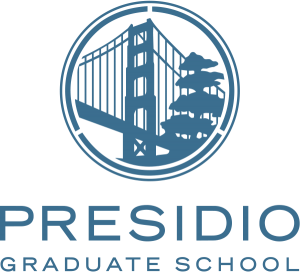
EMSNOW: What else do you want to say to EMSNOW readers?
Huge thanks for my long-time Technology Forecasters colleagues Jennifer and Eric.
I invite comments on my recent thoughts at https://www.greenbiz.com/users/pamela-gordon.


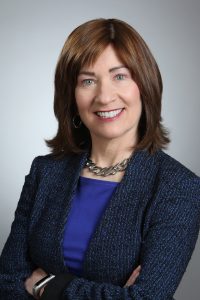 EMSNOW: How did you come to start Technology Forecasters, and what brought you to the electronics manufacturing industry?
EMSNOW: How did you come to start Technology Forecasters, and what brought you to the electronics manufacturing industry?
